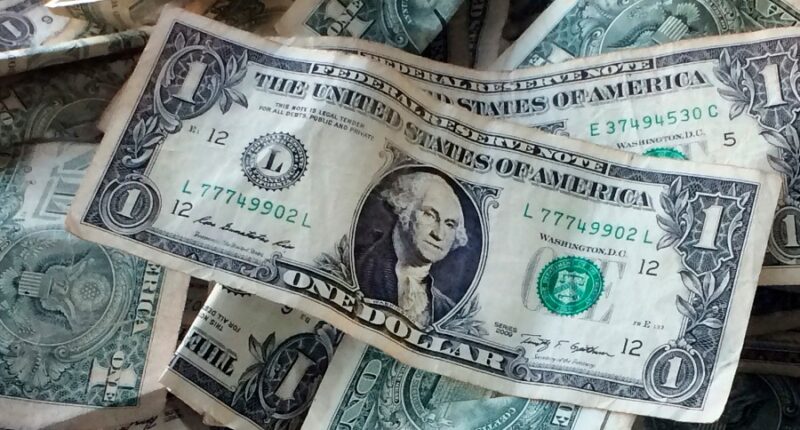Share this @internewscast.com

() The strength of the U.S. dollar influences trade, inflation and investment, but as President Donald Trump noted Friday, the currency’s power comes with trade-offs.
“I’m a person that likes a strong dollar, but a weak dollar makes you a hell of a lot more money,” Trump told reporters Friday.
Trump said a strong dollar helps keep inflation in check and feels good psychologically, but argued, “You can’t sell anything.”
The president’s mixed messaging highlights a tension policymakers have long grappled with: There isn’t a simple connection between the strength of a country’s currency and the strength of its economy.
On one hand, a strong dollar makes imported goods cheaper for American consumers, but on the other, a weaker dollar makes U.S. products more competitive abroad, benefiting exporters.
What does it mean when the dollar is strong versus weak?
The dollar is considered strong when it rises in value against other currencies, as measured by the exchange rate. If a dollar can buy more of another currency than before, that means it’s getting stronger relative to that currency.
Tourists notice this when traveling abroad and exchanging money.
Earlier this year, the U.S. dollar and the euro were nearly at parity, worth practically the same. Today, $1 is worth about 0.85 euros, meaning Americans visiting Italy will notice they get fewer euros in exchange for their dollars than just a few months ago. In that sense, the dollar has weakened relative to the euro.
But the value of the U.S. dollar and other currencies is constantly changing due to supply and demand, shaped by factors like monetary policy, inflation and investor sentiment.
The dollar has been weakening recently, falling more than 10% in the first half of the year when compared to a basket of currencies from major U.S. trading partners.
The last time the dollar weakened this much at the start of the year was 1973, according to The New York Times.
What are the advantages of a strong dollar?
American tourists get more value for their money abroad when the dollar is strong, but you don’t have to leave the country to experience the upside.
One of the main benefits is that it lowers the cost of imports, making foreign products cheaper for consumers.
But shoppers buying Mexican tequila and Canadian maple syrup aren’t the only ones who come out ahead a strong dollar also lowers input costs for businesses that rely on imports, easing inflationary pressures.
A U.S. automaker importing parts from Mexico would pay fewer dollars for the same peso-priced components when the dollar strengthens against the peso.
Lower input costs for U.S. companies put pressure on foreign competitors to cut prices to stay competitive, another potential win for American consumers.
More broadly, as the world’s primary reserve currency, a strong dollar projects global confidence and reinforces trust in the U.S. financial system. It’s often seen as a sign of economic strength.
“When we have a strong dollar, one thing happens it sounds good,” Trump told reporters Friday.
What are the disadvantages of a strong dollar?
A strong dollar can hurt American exporters because it makes U.S. goods more expensive in foreign markets.
Boeing, for example, exports large numbers of aircraft globally, and when the U.S. dollar strengthens, those planes become more expensive to foreign buyers paying in other currencies.
American firms that don’t export can also feel the pinch, as they often compete with imports. A strong dollar can make it harder for Made-in-the-USA products to hold their own against cheaper goods from abroad.
“You can’t sell tractors, you can’t sell trucks, you can’t sell anything,” Trump said of a strong dollar on Friday. “It is good for inflation, that’s about it.”
While a strong dollar tends to ease U.S. inflationary pressures, it also intensifies inflation abroad a dynamic that, in today’s interconnected global economy, can ultimately be bad for business.
Another point: A strong dollar raises the cost of visiting the U.S., which can dampen tourism.
In the end, the strength of the dollar is a balancing act, with trade-offs that ripple across the global economy. Whether it helps or hurts depends on where you sit and what you’re trying to sell.











